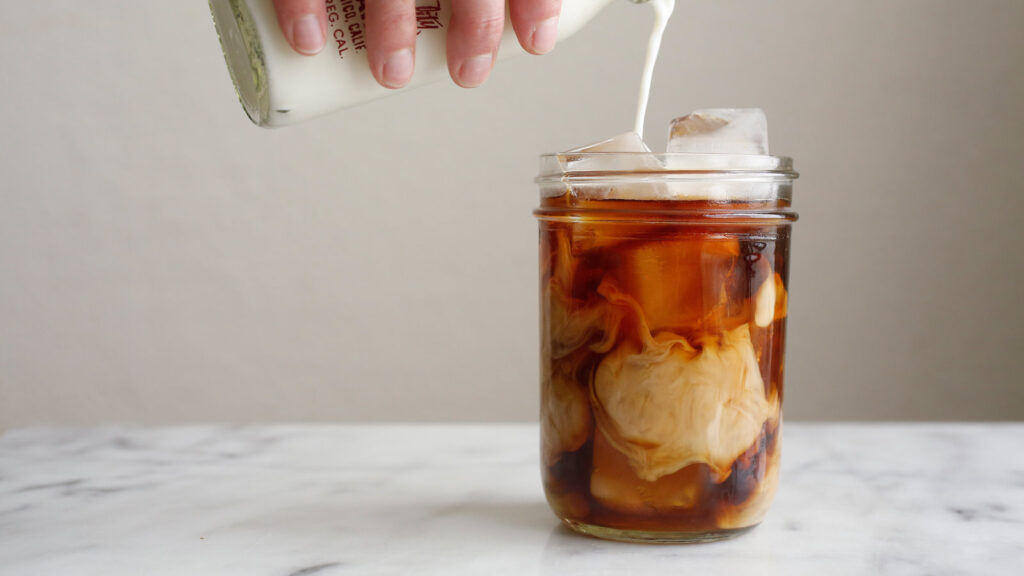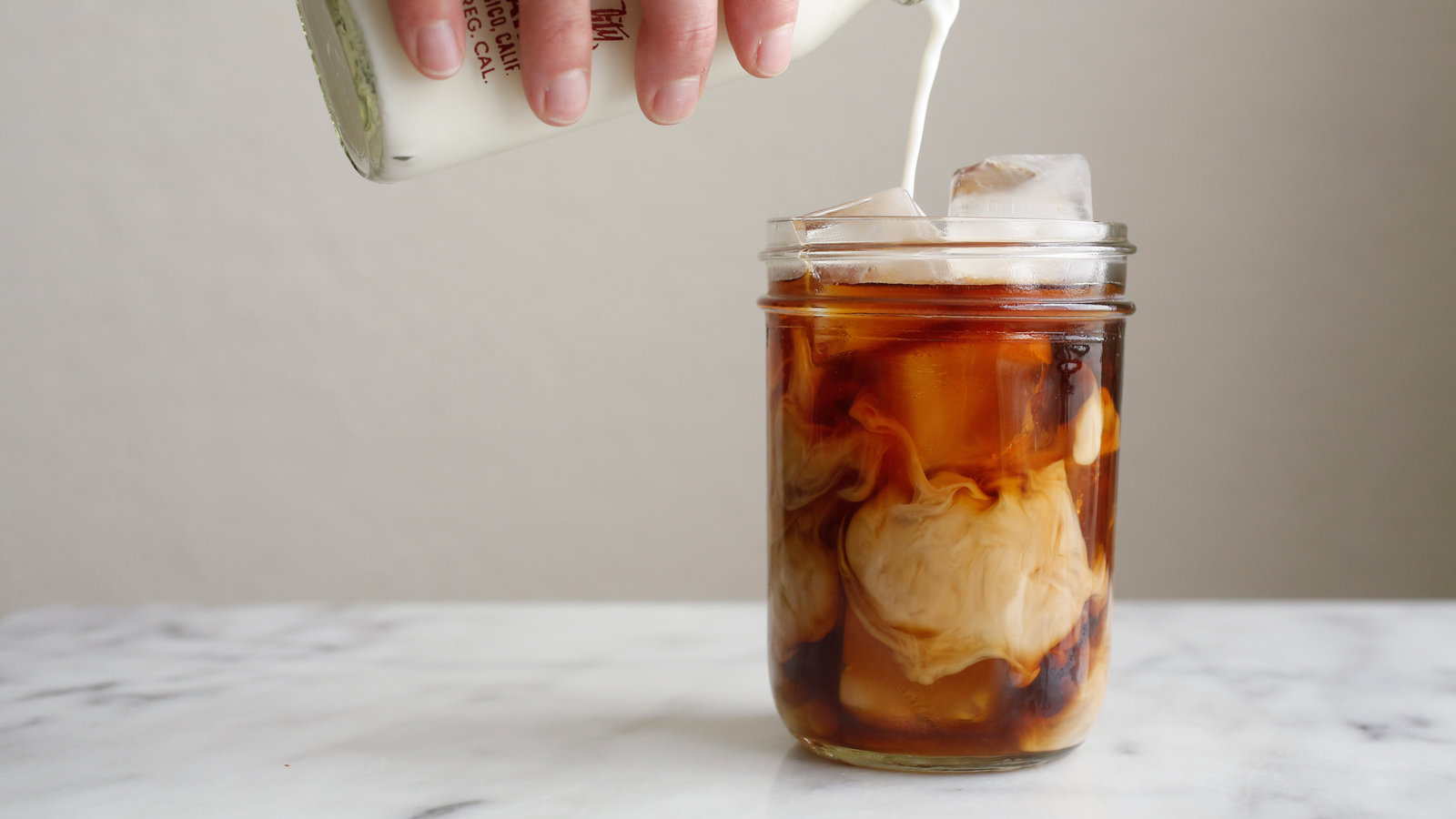
Can You Make Coffee With Cold Water? Unveiling the Secrets of Cold Brew
The aroma of freshly brewed coffee is a morning ritual for millions. But what if you could unlock a new dimension of coffee flavor, all without the heat? The question, “Can you make coffee with cold water?” leads us to the fascinating world of cold brew, a method that’s rapidly gaining popularity among coffee aficionados and casual drinkers alike. This article delves into the science, the process, and the benefits of cold brew, answering the core question while exploring the nuances of this increasingly popular brewing technique.
The Science Behind Cold Brew
Traditional hot brewing methods rely on heat to extract the soluble compounds from coffee grounds. This process, while effective, can also extract undesirable compounds, leading to a more acidic and bitter taste. Cold brew, on the other hand, uses time, not heat, to perform the extraction. This fundamental difference is key to understanding why the answer to “Can you make coffee with cold water?” is a resounding yes, and why the resulting beverage is so unique.
The extraction process in cold brew is slower and gentler. Over a period of 12-24 hours, cold water gradually draws out the flavors, oils, and caffeine from the coffee grounds. Because the water is cold, the extraction of acidic compounds is significantly reduced. This results in a smoother, less bitter coffee concentrate.
The lower acidity of cold brew is often cited as a major advantage. Many coffee drinkers find that cold brew is easier on the stomach, making it a good choice for those sensitive to acidity. The absence of heat also preserves more of the coffee’s delicate flavor compounds, leading to a more complex and nuanced taste profile. This intricate process is why the question “Can you make coffee with cold water?” is more than just a simple inquiry; it’s an invitation to a different coffee experience.
The Cold Brew Process: A Step-by-Step Guide
Making cold brew at home is surprisingly simple. The core components are coffee grounds, cold water, and time. Here’s a step-by-step guide:
- Grind the Coffee: Use coarsely ground coffee beans. A coarser grind is essential for cold brew, as it prevents over-extraction and bitterness.
- Combine Coffee and Water: In a jar or container, combine the coarsely ground coffee with cold, filtered water. The ratio of coffee to water is a matter of personal preference, but a common starting point is a 1:4 or 1:5 ratio (coffee to water, by weight).
- Stir and Steep: Stir the mixture thoroughly to ensure all the coffee grounds are saturated. Then, cover the container and let it steep in the refrigerator for 12-24 hours. The longer the steep time, the stronger the concentrate.
- Filter the Concentrate: After steeping, filter the coffee concentrate. This can be done using a cheesecloth, a fine-mesh strainer, or a dedicated cold brew filter. The goal is to remove all the coffee grounds.
- Dilute and Enjoy: The resulting liquid is a highly concentrated cold brew. Dilute it with water, milk, or your preferred beverage to taste. Ice is also a welcome addition.
The beauty of this process is its flexibility. You can experiment with different coffee beans, grind sizes, and steep times to find your perfect cold brew recipe. The answer to “Can you make coffee with cold water?” is a starting point, the process is where you truly explore your coffee’s potential.
Cold Brew vs. Iced Coffee: Understanding the Difference
It’s important to distinguish between cold brew and iced coffee. While both are served cold, they are made using different methods and result in different flavor profiles. Iced coffee is typically made by brewing hot coffee and then chilling it, either by pouring it over ice or refrigerating it. This method produces a coffee with a similar acidity and bitterness to hot-brewed coffee.
Cold brew, as we’ve discussed, is made by steeping coffee grounds in cold water for an extended period. This results in a smoother, less acidic, and often sweeter coffee. The question “Can you make coffee with cold water?” is often confused with how iced coffee is made, but the difference in process leads to a different result.
In summary:
- Cold Brew: Made by steeping coffee grounds in cold water for 12-24 hours, resulting in a smooth, low-acid concentrate.
- Iced Coffee: Made by brewing hot coffee and then chilling it, resulting in a coffee with a similar acidity to hot-brewed coffee.
Understanding this difference is crucial for appreciating the unique qualities of cold brew.
The Benefits of Cold Brew: Beyond the Flavor
Beyond its smooth, less acidic flavor, cold brew offers several other advantages. The process of making cold brew, answering the question “Can you make coffee with cold water?” is more than just a trend; it offers several benefits:
- Lower Acidity: As mentioned earlier, cold brew is less acidic than hot-brewed coffee, making it easier on the stomach.
- Rich Flavor Profile: The cold extraction process preserves more of the coffee’s delicate flavor compounds, resulting in a more complex and nuanced taste.
- Versatility: Cold brew concentrate can be used in a variety of ways. It can be diluted with water or milk, used in cocktails, or added to desserts.
- Long Shelf Life: Cold brew concentrate can be stored in the refrigerator for up to two weeks, making it a convenient option for those who enjoy coffee regularly.
- High Caffeine Content: Cold brew often has a higher caffeine content than hot-brewed coffee, providing a sustained energy boost. The caffeine content varies depending on the bean, grind, and steep time.
These benefits contribute to cold brew’s growing popularity.
Choosing the Right Coffee Beans for Cold Brew
The type of coffee bean you choose can significantly impact the flavor of your cold brew. While any coffee bean can be used, some beans are better suited for this brewing method than others. The answer to “Can you make coffee with cold water?” is now clear, but the type of bean enhances the experience.
Here are some things to consider when selecting coffee beans for cold brew:
- Roast Level: Medium to dark roasts often work well for cold brew, as they tend to have more pronounced flavor profiles. Light roasts can also be used, but they may produce a more acidic result.
- Origin: Coffee beans from different origins offer unique flavor characteristics. Experiment with beans from different regions, such as Ethiopia, Colombia, or Sumatra, to find your favorites.
- Freshness: Use freshly roasted coffee beans for the best flavor. Grind the beans just before brewing.
Experimentation is key. Try different beans and roast levels to find the ones that best suit your taste.
Troubleshooting Common Cold Brew Problems
Even with a simple process, there are a few common problems that can arise when making cold brew. Here’s how to troubleshoot them:
- Weak Coffee: If your cold brew is weak, try using a higher coffee-to-water ratio or increasing the steep time.
- Bitter Coffee: If your cold brew is bitter, try using a coarser grind, reducing the steep time, or using a different type of coffee bean.
- Cloudy Coffee: Cloudiness can be caused by fine coffee grounds passing through the filter. Use a finer filter or double-filter the concentrate.
- Off-Flavors: Make sure your equipment is clean and that you’re using fresh, high-quality coffee beans.
By addressing these common issues, you can ensure your cold brew is consistently delicious.
The Future of Cold Brew
The popularity of cold brew continues to grow. As more people discover its unique flavor and benefits, it’s likely to become even more widespread. The answer to the question “Can you make coffee with cold water?” has opened the doors to a world of coffee possibilities.
Here are some trends to watch in the cold brew market:
- Ready-to-Drink Cold Brew: Pre-made cold brew in bottles and cans is becoming increasingly popular, offering convenience for consumers.
- Specialty Cold Brew: Coffee shops are experimenting with different coffee beans, brewing methods, and flavor infusions to create unique cold brew beverages.
- Cold Brew at Home: The demand for home cold brew equipment and recipes is on the rise.
Cold brew is not just a passing trend; it’s a brewing method that’s here to stay. The question “Can you make coffee with cold water?” started a coffee revolution and will keep evolving.
Conclusion: Embracing the Cold Brew Experience
The answer is a resounding yes: you absolutely can make coffee with cold water. Cold brew offers a unique and flavorful coffee experience, with a smoother taste and less acidity than traditional hot-brewed coffee. By understanding the science, the process, and the benefits of cold brew, you can unlock a new dimension of coffee enjoyment. The question “Can you make coffee with cold water?” is the starting point for a journey into the world of cold brew, a world filled with flavor, versatility, and endless possibilities. Embrace the cold brew experience and discover your perfect cup.
[See also: Best Coffee Makers for Cold Brew]
[See also: Cold Brew Recipes for Beginners]
[See also: Coffee Bean Origins: A Guide to Flavor Profiles]


